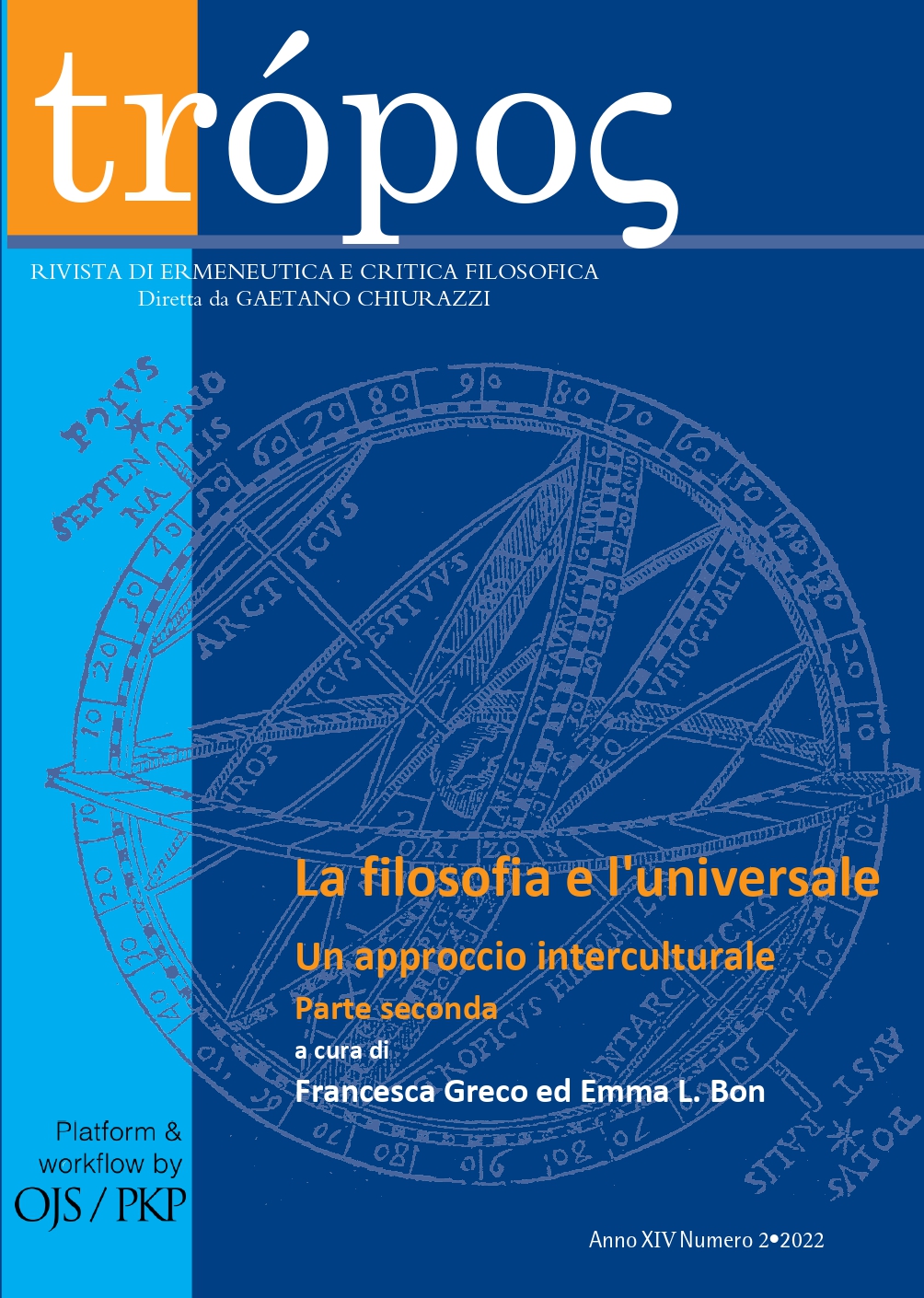Decentring with Dōgen
To encounter the Other, across Neurotypes
DOI:
https://doi.org/10.13135/2036-542X/8884Keywords:
Decentring, Dependent Origination, Dōgen, Autism, Bodymind practicesAbstract
In this paper, I formulate a concept of decentring — as a “universal for this time and place” — in dialogue with the Japanese mediaeval philosopher Dōgen and autism scholars. I argue that decentring is needed when entering in dialogue or collaboration across differences, especially in the context of an encounter between a neurodiverse person on the autistic spectrum (AS) and a so-called neurotypical (NT).
I make suggestions about what may hinder or help both NT and AS towards decentring, through Dōgen’s frameworks of dependent origination and of “being in a place”, together with the “double empathy problem” and the concept of blindness to styles of movement, developed in the context of studies on autism. I first argue (Thesis 1) that NT might resist decentring vis-à-vis AS; and that (Thesis 2) AS might have advantages at decentring, some shared with other minorities and some more specific. NT might resist trying to “see as the other sees”, feel entitled to objectify AS, and attribute stereotypical characteristics to them. AS, because of their weaker filters, or permeable skins, might have epistemological and neurological advantages towards decentring: centring one’s place and opening up to others. However, there are also contexts that trigger AS to close off from their context rather than opening up. From the perspective of dependent origination, when two people interact (or fail to interact), not only their tendencies, but also the whole context needs to be taken into account.
I then argue (Thesis 3) that both AS and NT might profit from bodymind practices that help decentring vis-à-vis each other. This might allow them to develop the capacity for creative response and attunement to reality, which involves taking responsibility for the co-creation of each other and their world. The goal is to flourish together in a community in which diversity is not only accepted, not only valued in theory, but practised every day.


